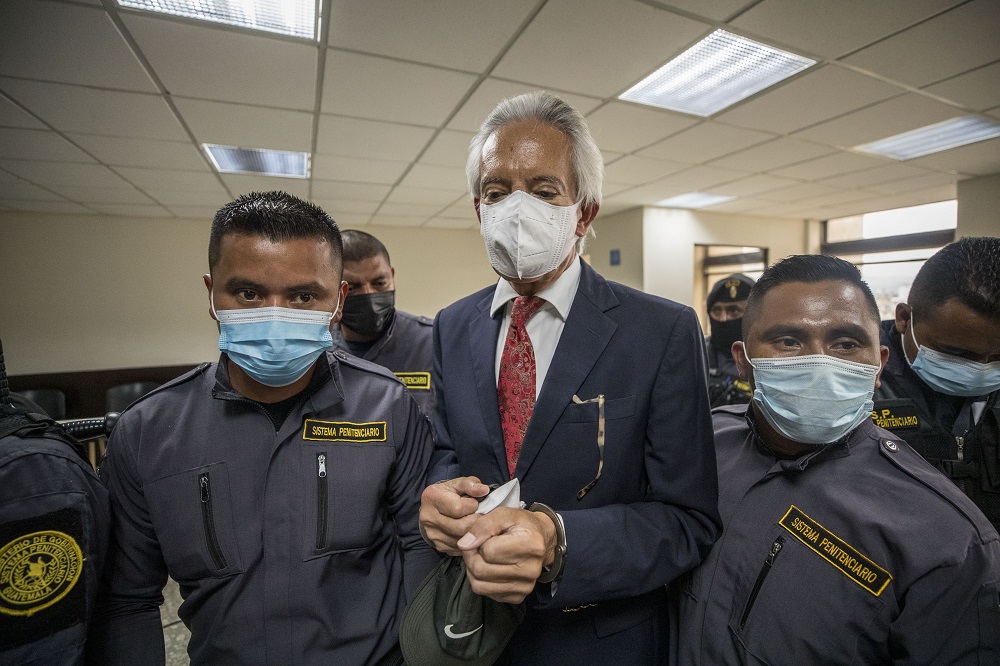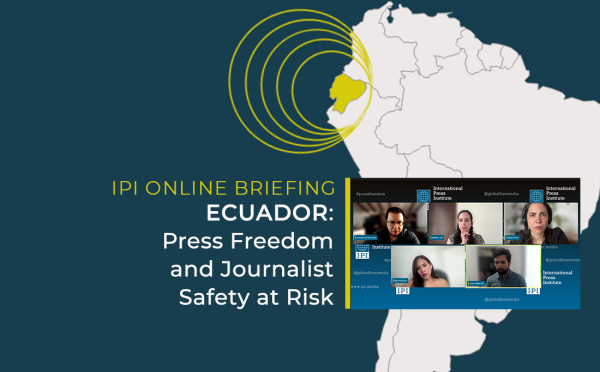The members of the International Press Institute (IPI), meeting at their 71st annual General Assembly during the IPI World Congress on September 8, 2022 in New York City, adopted by unanimous vote a resolution expressing deep concern over the deteriorating situation for press freedom and the safety of journalists in Mexico and Central America.
Mexico
As many as fifteen journalists have been murdered in Mexico so far this year alone, a shocking figure even amidst the backdrop of Mexico’s years-long journalist-safety crisis. The surge in violence makes Mexico the deadliest country in the world for the press, surpassing even the war zone in Ukraine. These unabated attacks are being fuelled by near-blanket impunity for those responsible for crimes against journalists.
Despite Mexican President Andrés Manuel López Obrador’s promise of “zero impunity” for the killings of journalists, the crisis has only worsened under his rule. Disturbingly, instead of taking clear action to protect journalists, López Obrador has used his pulpit to denigrate and smear the press, fanning the flames of hostility.
IPI members call on Mexican authorities to put an end to the bloodshed. This means ensuring both that journalists under threat receive effective protection and that all persons responsible for the killing of journalists – including and especially the masterminds – are brought to justice. Impunity for such attacks must end. IPI members also call on President López Obrador to end his pattern of aggressive and intimidatory rhetoric against the press and instead prioritize journalist safety in recognition of the media’s essential role in democracy.
Guatemala
Press freedom is also under threat in other parts of the region. On July 29, Guatemalan police arrested IPI World Press Freedom Hero José Rubén Zamora and raided the offices of his news outlet, elPeriódico. Zamora remains in pre-trial detention as authorities investigate him on charges of money laundering, blackmail, and influence peddling.
Journalists in Guatemala have denounced the arrest as retaliation for elPeriódico’s critical coverage of President Alejandro Giammattei and his administration, including allegations of corruption.
Last month, a judge ordered Zamora to remain in pre-trial detention until the end of the investigation, despite meeting the requirements for house arrest. The next hearing in the case is scheduled for December 8. Authorities also arrested elPeriódico’s financial manager, Flora Silva, who also remains in detention. Meanwhile, some of elPeriódico’s bank accounts remain inaccessible after having been frozen on July 29.
The IPI global membership demands the immediate release of our colleague José Rubén Zamora and other elPeriodico staff. We denounce in the strongest terms the abuse of legal procedures to detain one of Guatemala and Central America’s most respected journalists. His continued detention is a severe attack on press freedom and sign of a growing crackdown in independent journalism in Central America.
El Salvador
This year’s IPI-IMS World Press Freedom Hero award was co-awarded to Carlos Dada, co-founder and director of digital news outlet El Faro and a pioneer of investigative reporting and online journalism in El Salvador and Latin America. The award was conferred not only in honour of Dada and El Faro’s fearless coverage of violence, corruption, inequality, and human rights violations, but also to show solidarity with independent journalism in El Salvador amid an authoritarian turn under President Nayib Bukele.
Throughout his career, Dada and his team have faced threats and attacks by various governments of El Salvador as well as by criminal organizations. IPI members are gravely concerned over growing intimidation of journalists in El Salvador, including increasing efforts by the government to harass and discredit the independent press, as well as suspected government surveillance. In 2022, Canada’s Citizen Lab revealed that the phones of Dada and 21 of his colleagues were hacked and surveilled using the infamous Pegasus spyware during a time when El Faro was investigating links between the Salvadoran government and criminal organizations. IPI members urgently call on the Bukele administration to cease any harassment of the media and to allow the press to carry out its watchdog function free from fear of retaliation.
IPI members also register their serious disappointment that the U.S. government failed to grant Carlos Dada, an internationally respected journalist and recipient of numerous awards, a visa to travel to New York and accept the World Press Freedom Hero award in person. This development sends a poor message at a time when support and solidarity for journalists in El Salvador should be a top priority, and stands in contrast to the U.S. government’s professed support for press freedom abroad.
Nicaragua
Recent years have seen a severe crackdown on press freedom in Nicaragua under the authoritarian regime of long-time President Daniel Ortega, which has systematically sought to suppress dissident voices. The Nicaraguan press has faced brutal oppression by the authorities since the start of a social and political crisis in the country in 2018. Journalists face threats, harassment, and detention, with many forced into exile. Independent media outlets have been hounded into submission or closure.
IPI members condemn the alarming repression of media and journalists in Nicaragua by the authoritarian Ortega regime. We call on the government to end its crackdown on the press and allow journalists to do their work freely and safely. The international community must demonstrate support and solidarity for the journalistic community in Nicaragua and put pressure on the Ortega regime to stop the persecution of critical voices. The IPI global network stands in full solidarity with our brave colleagues in Nicaragua.



